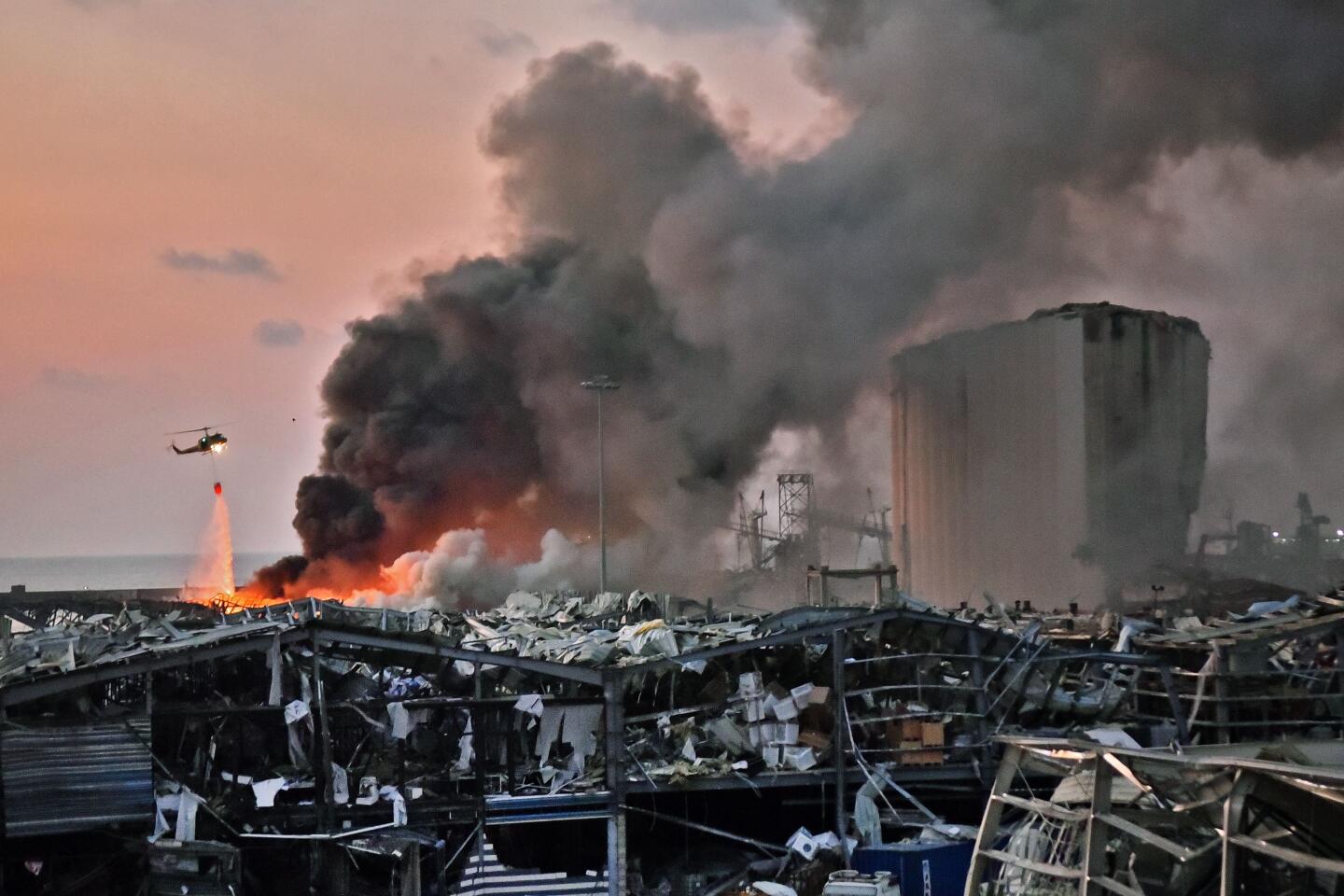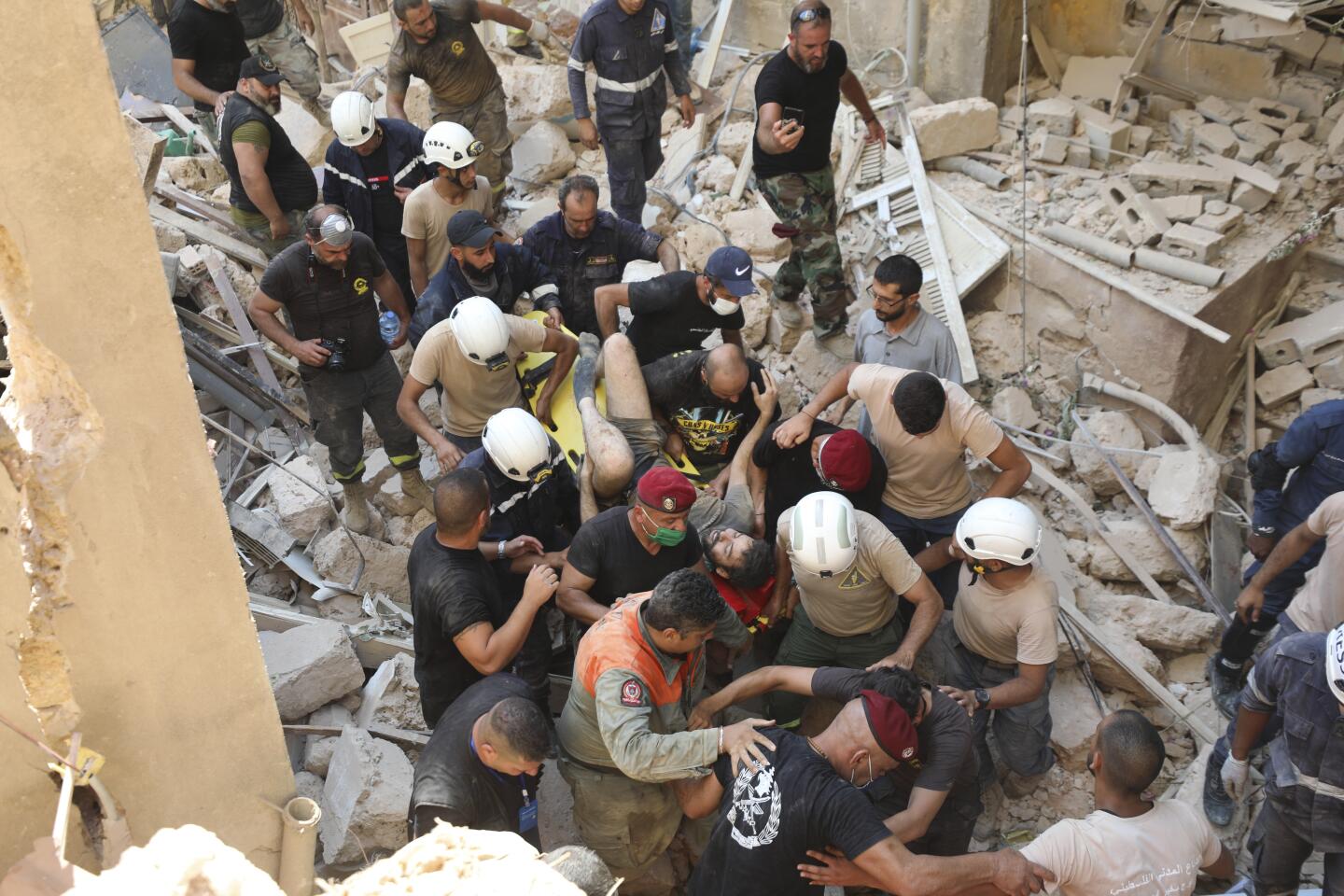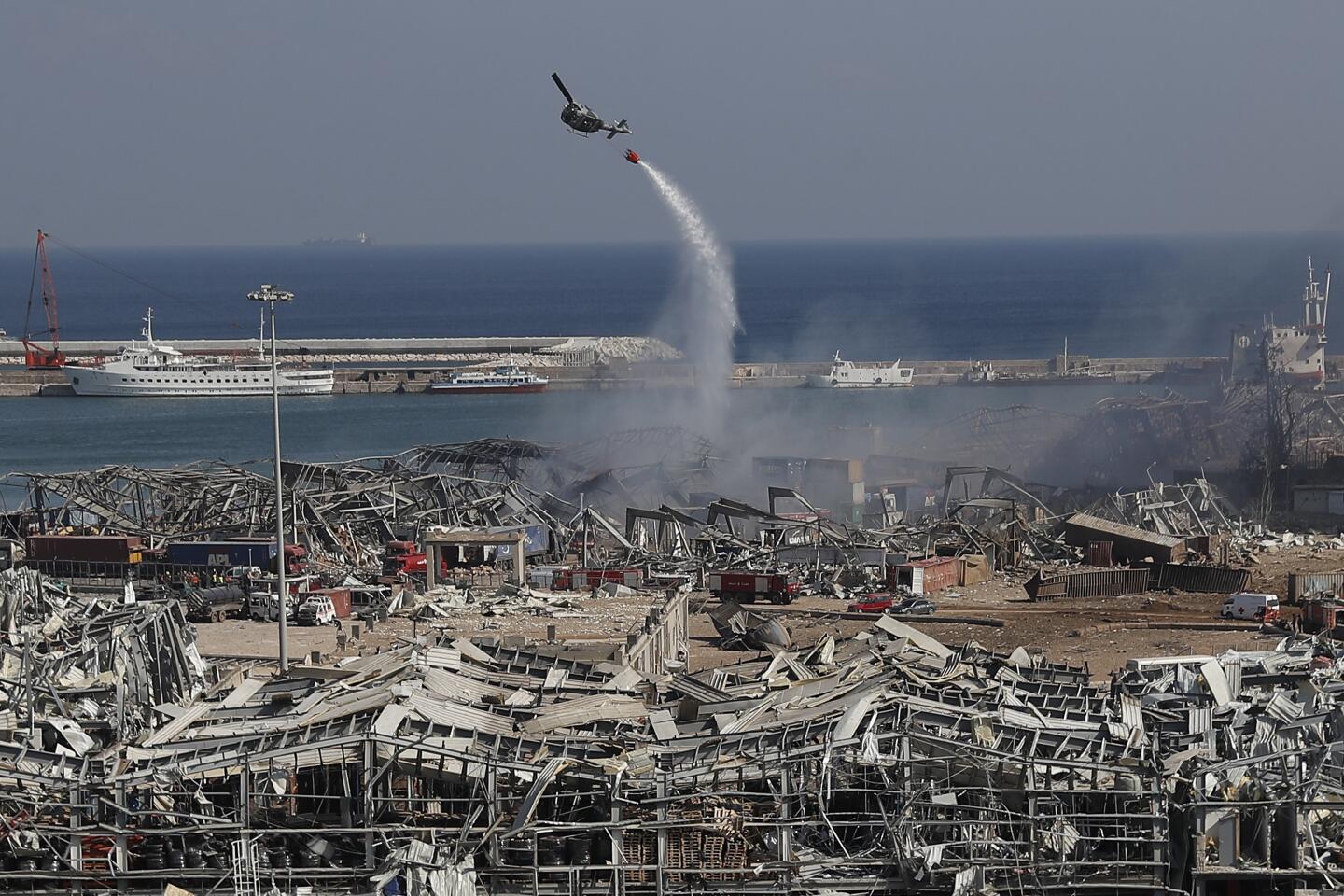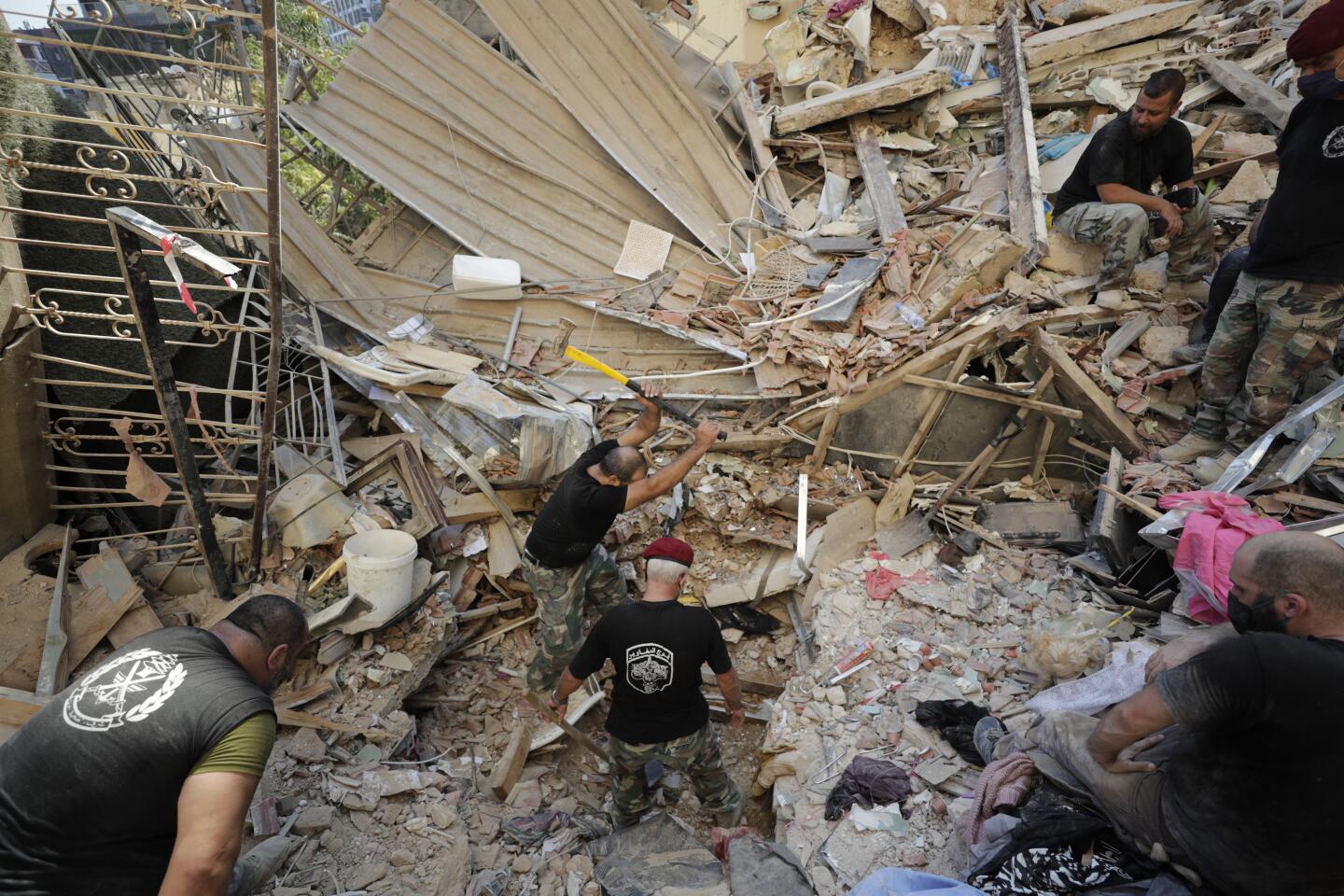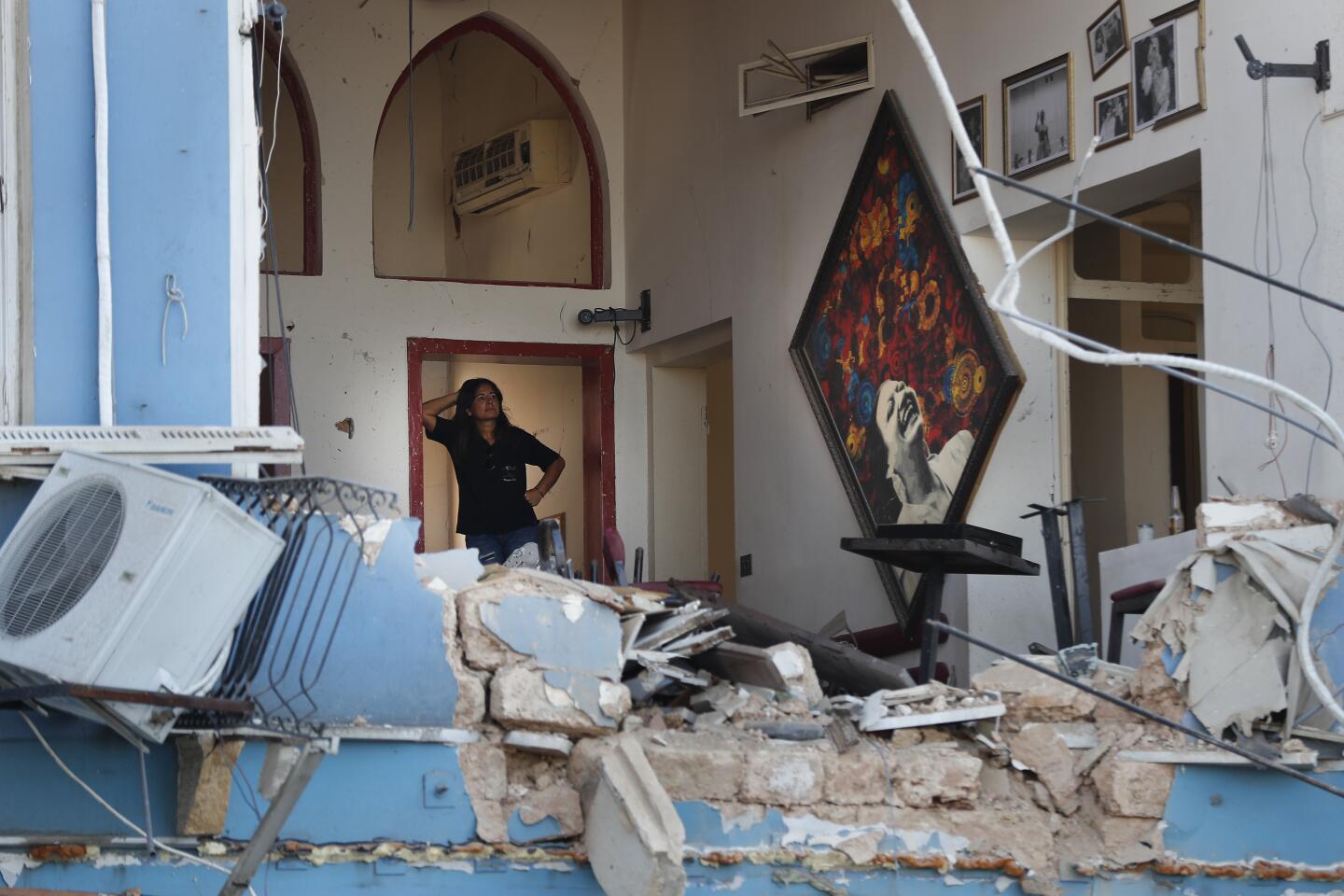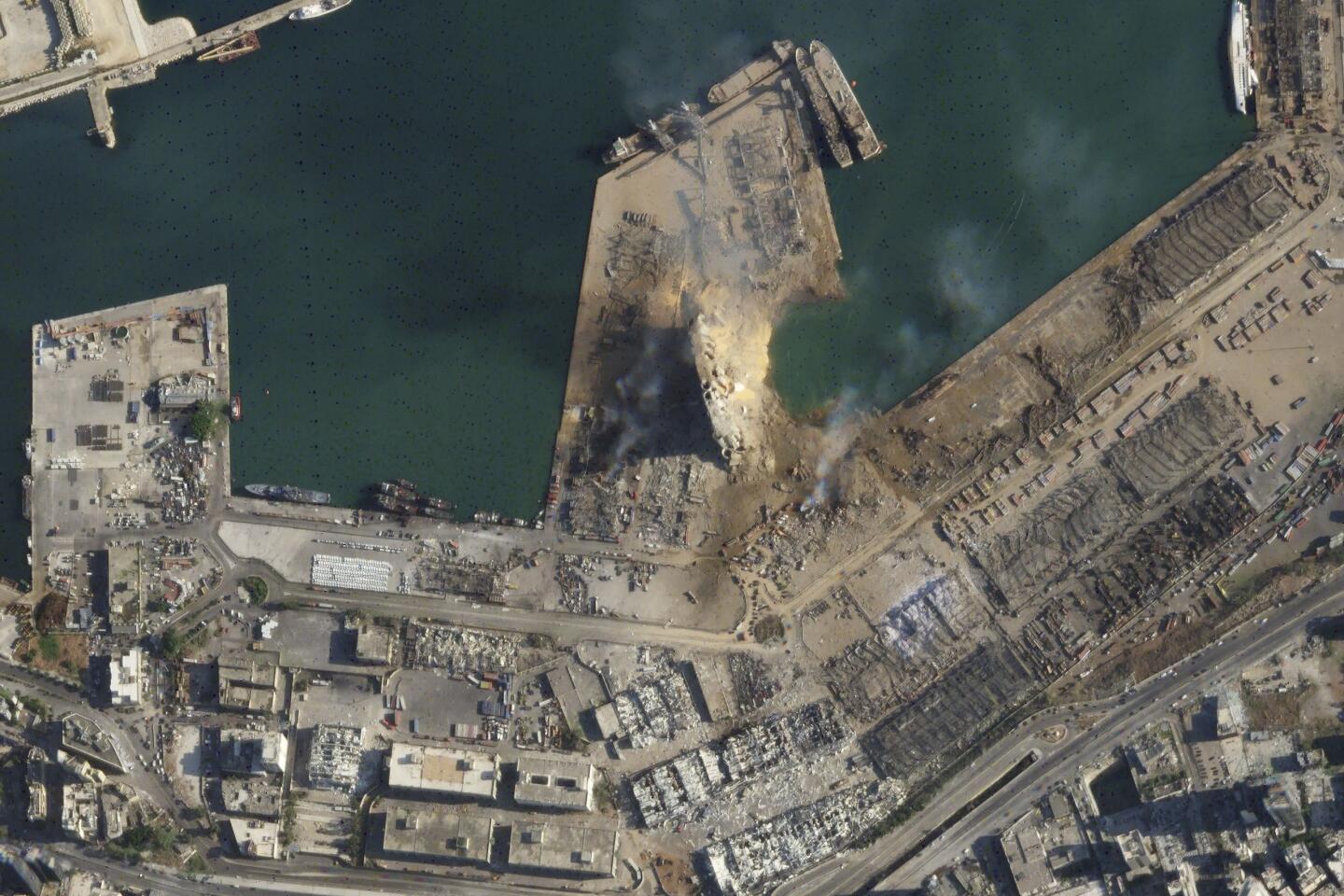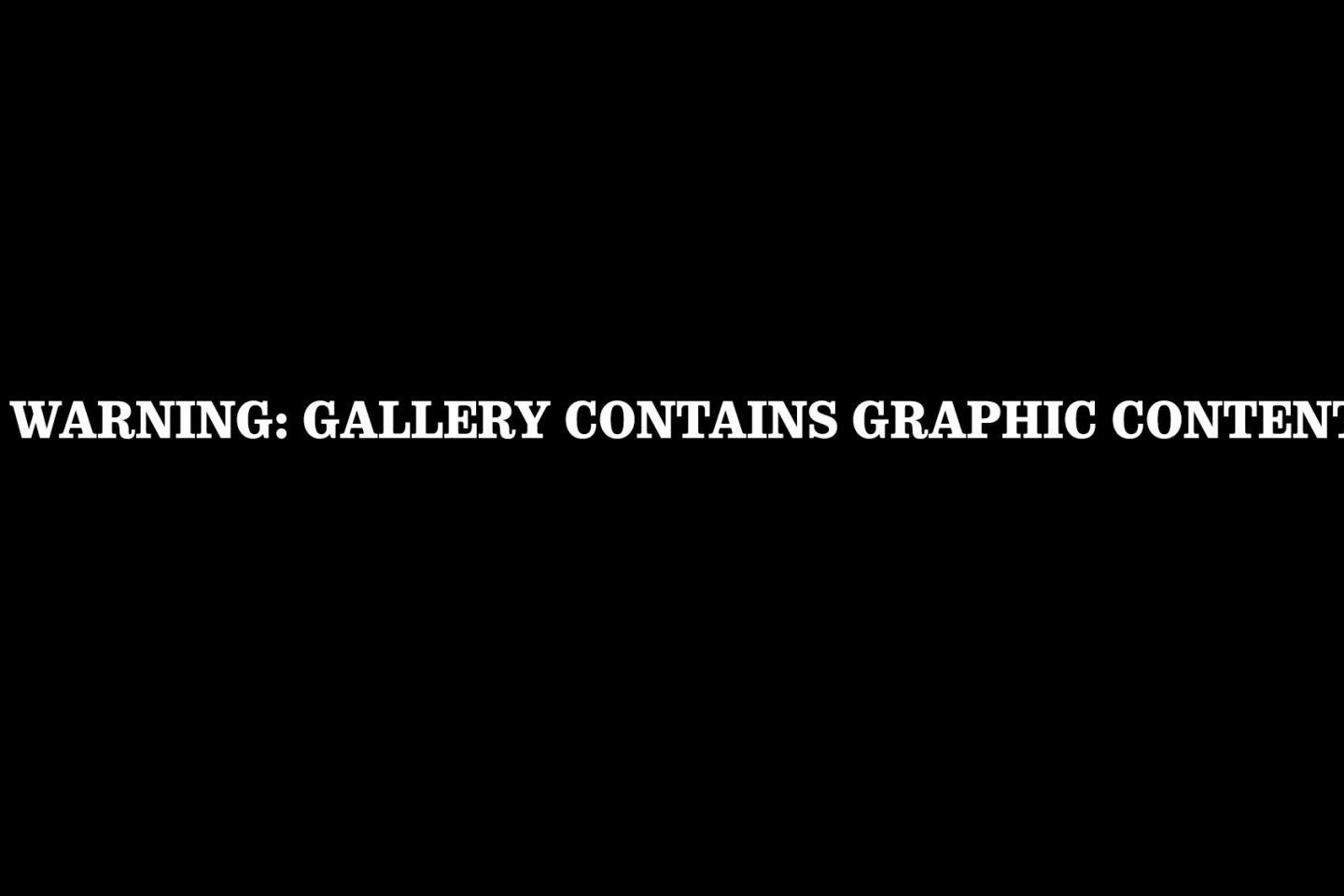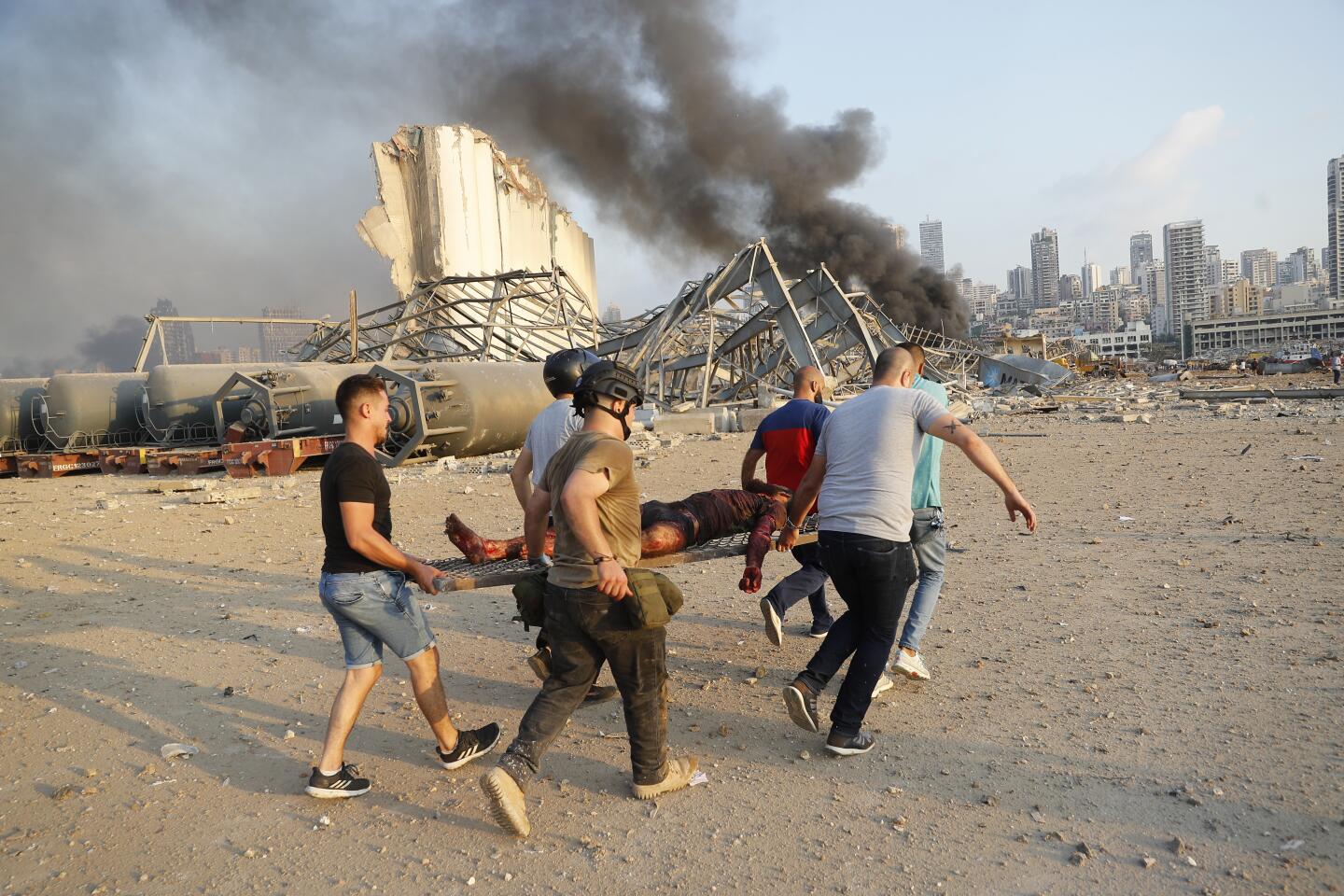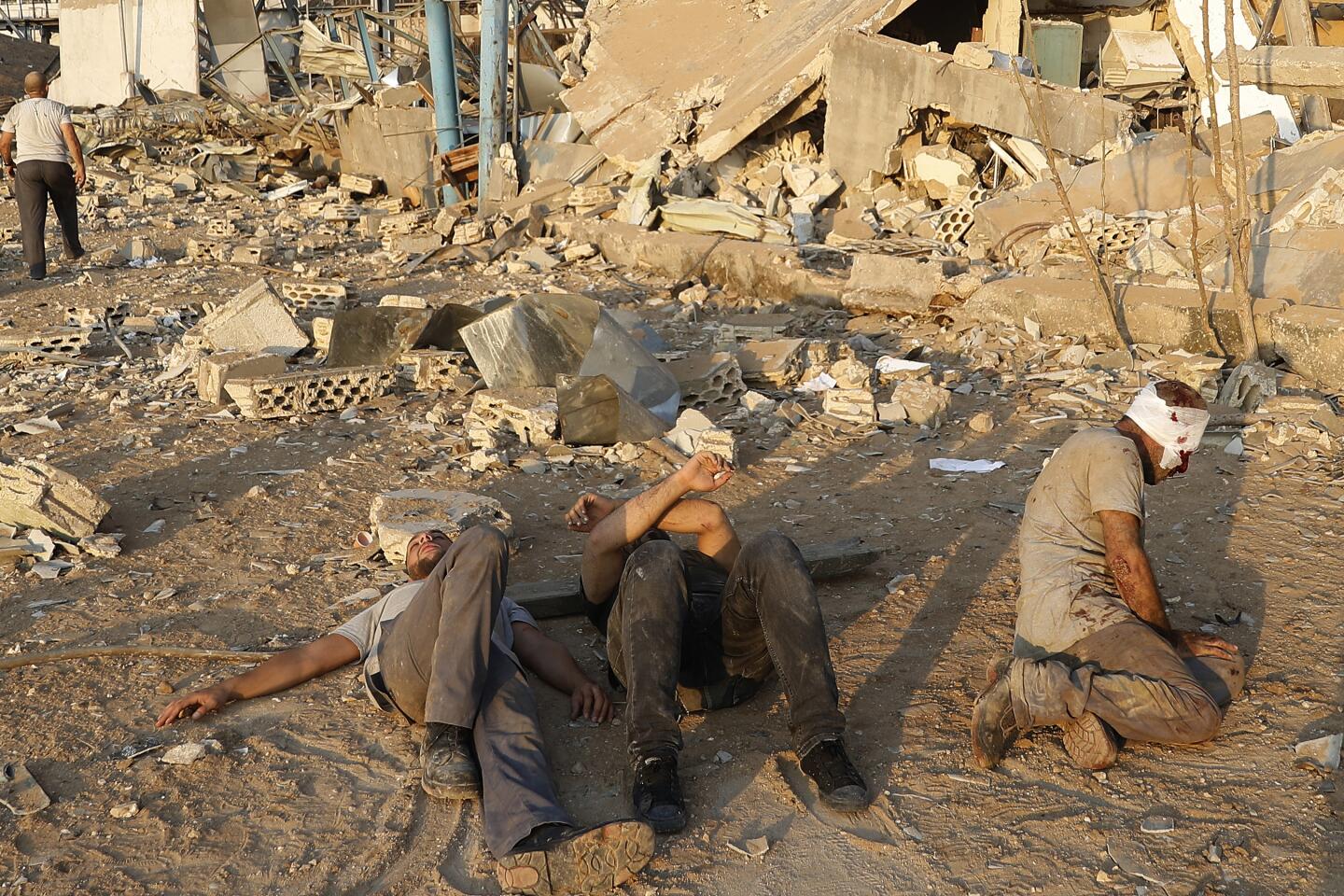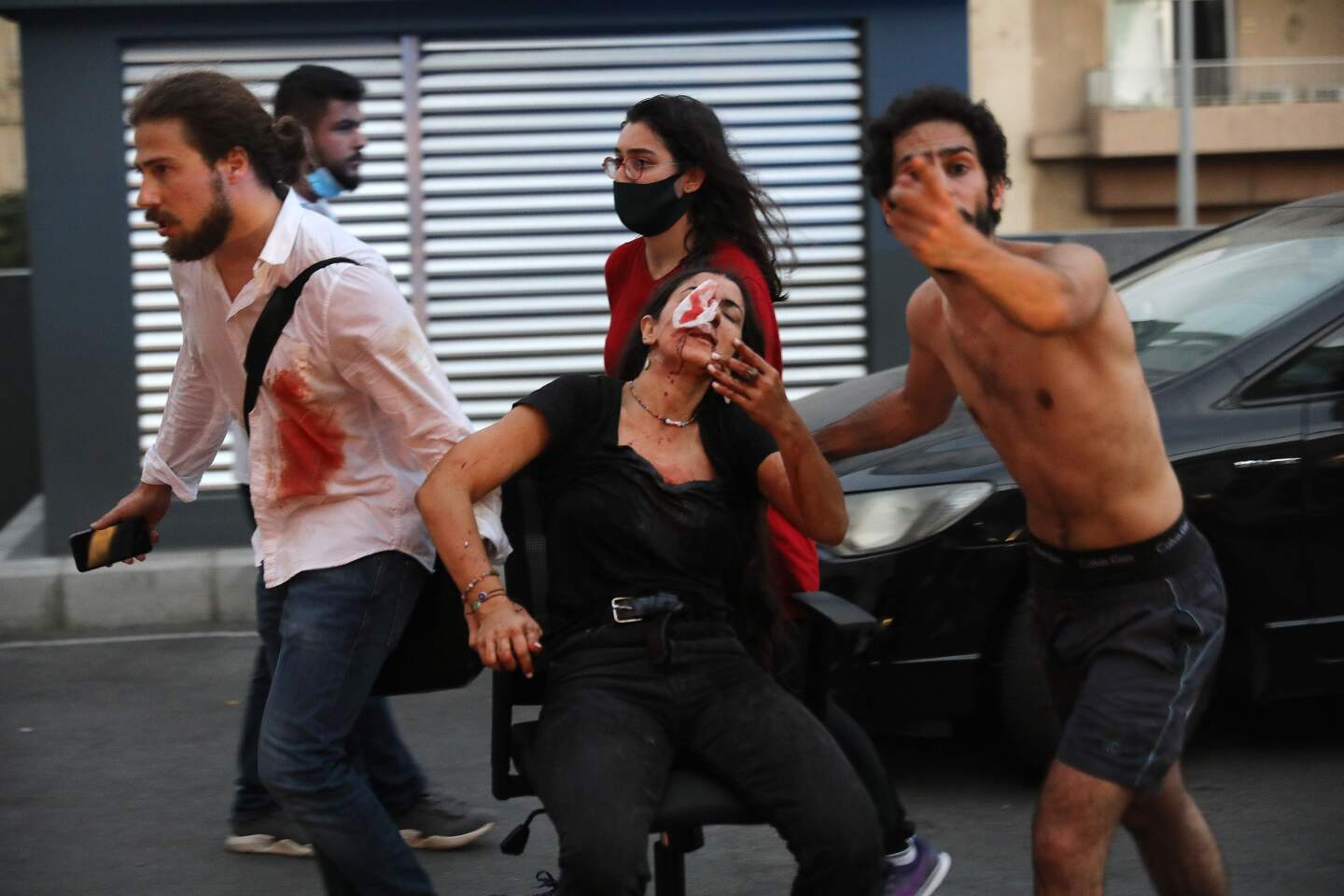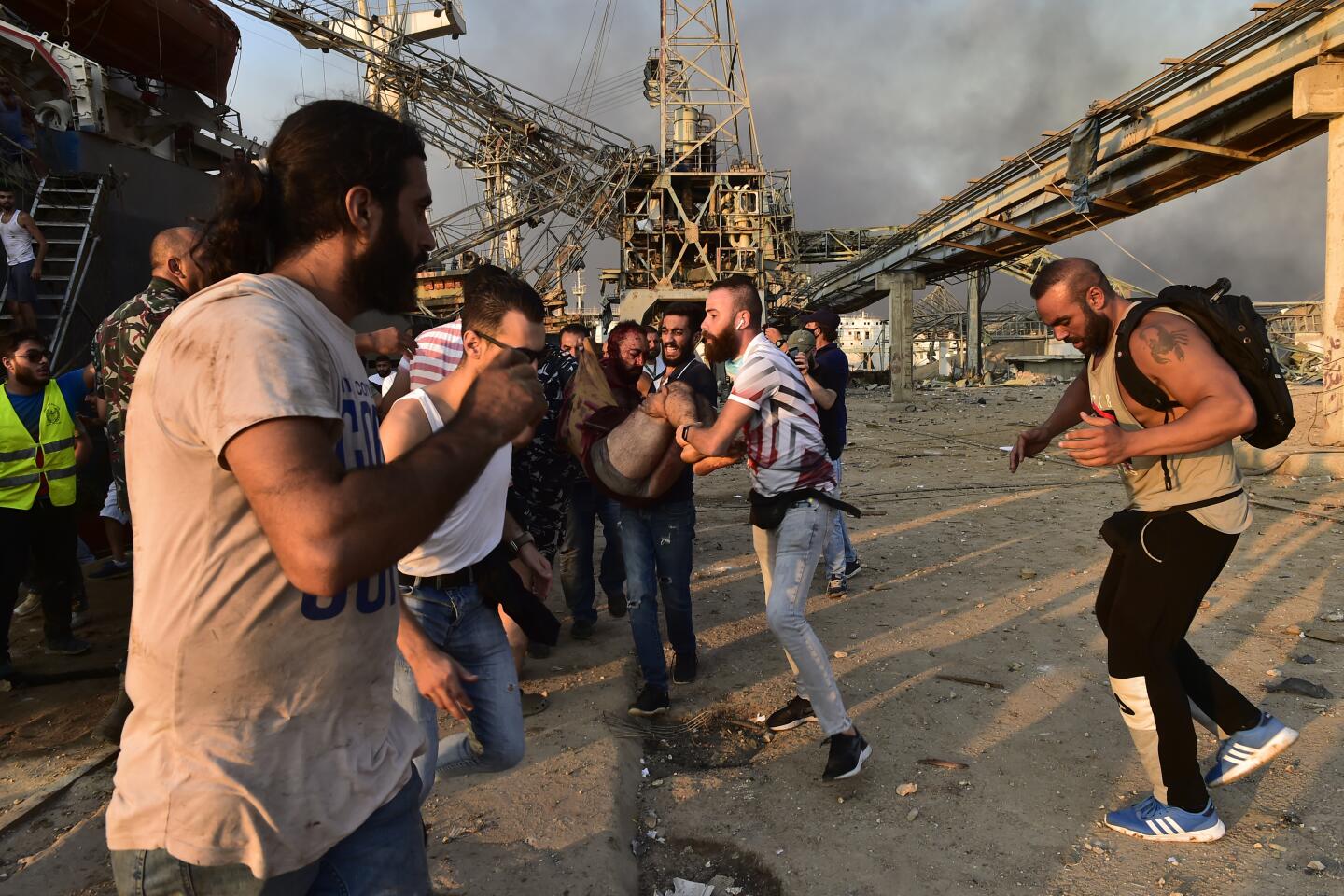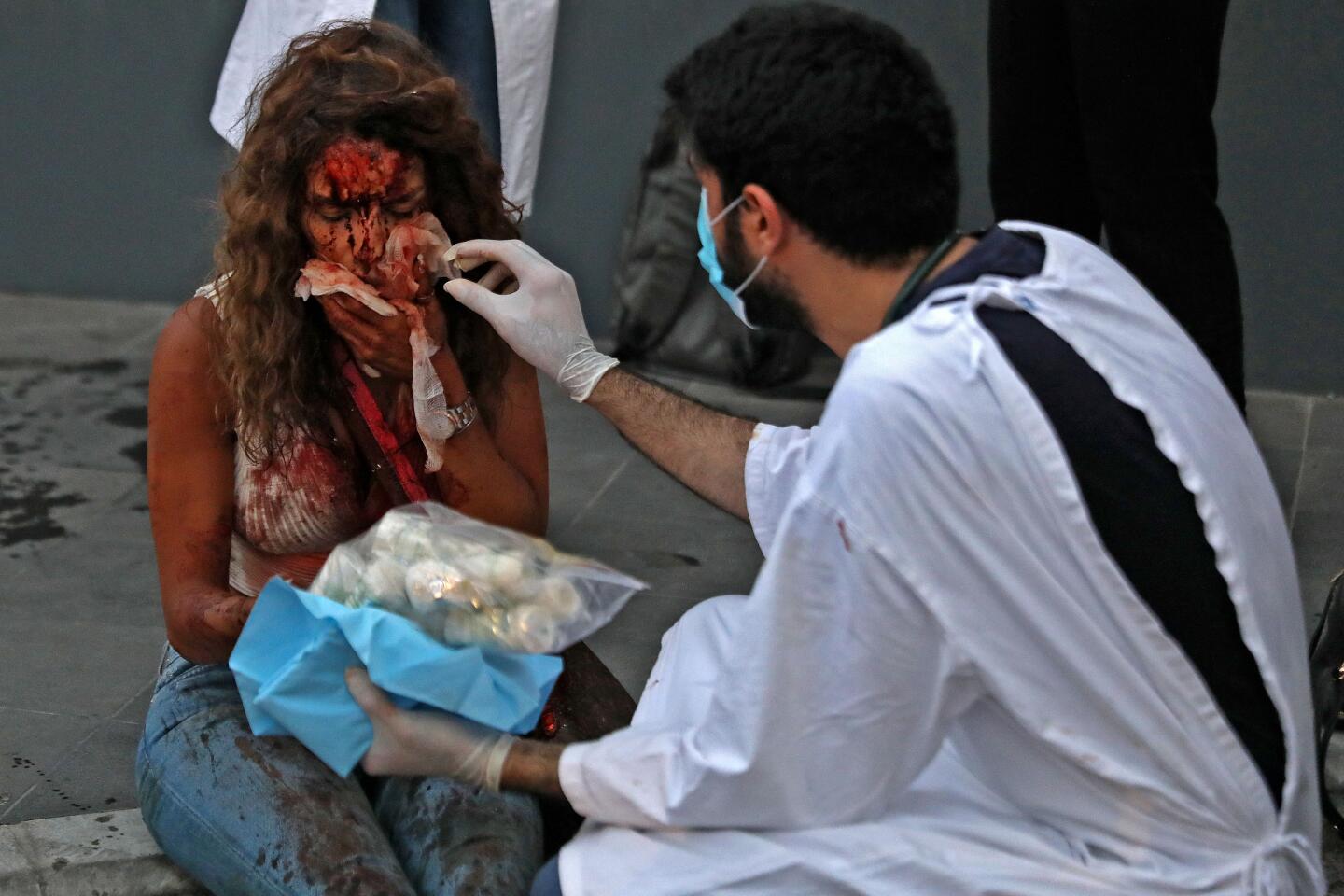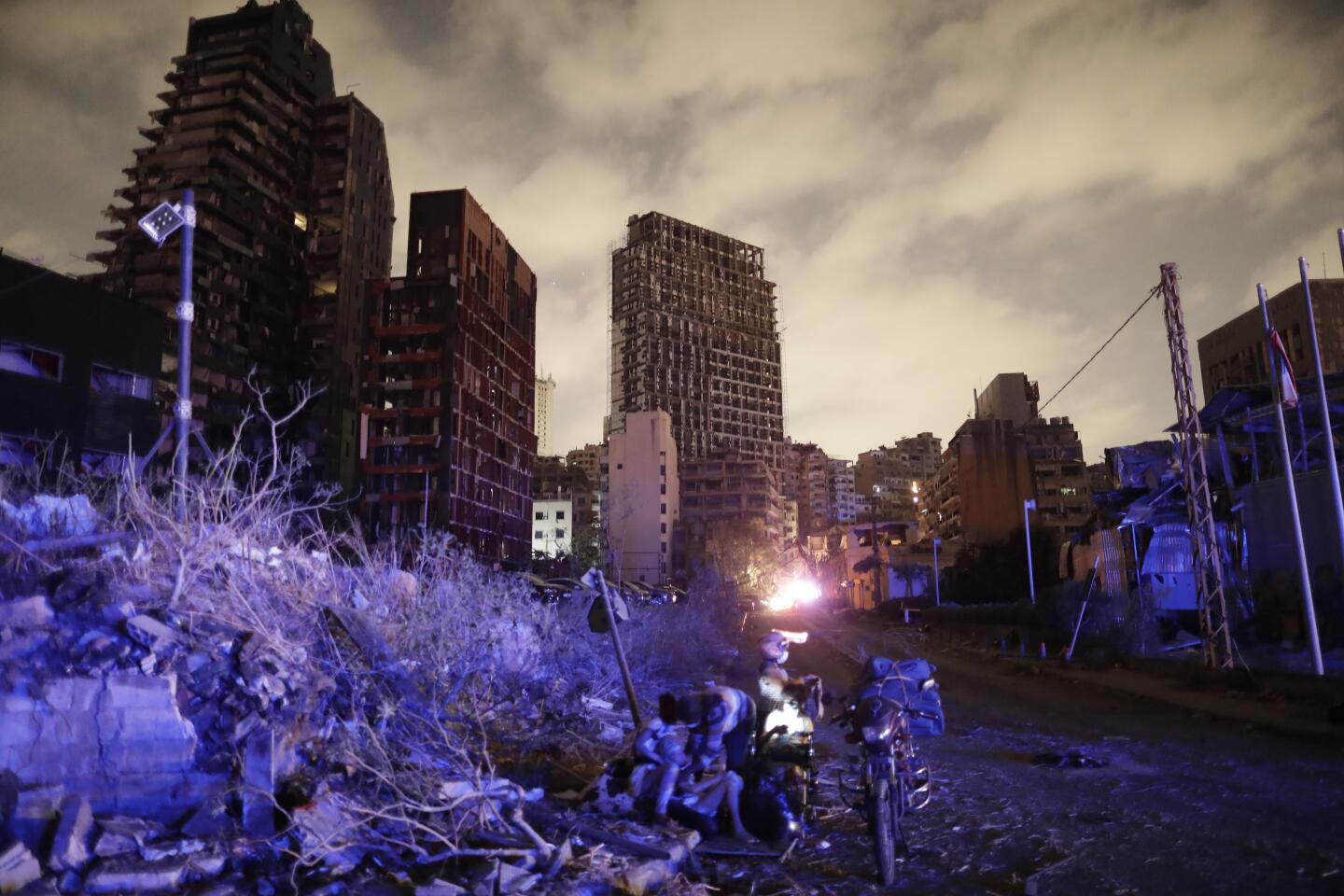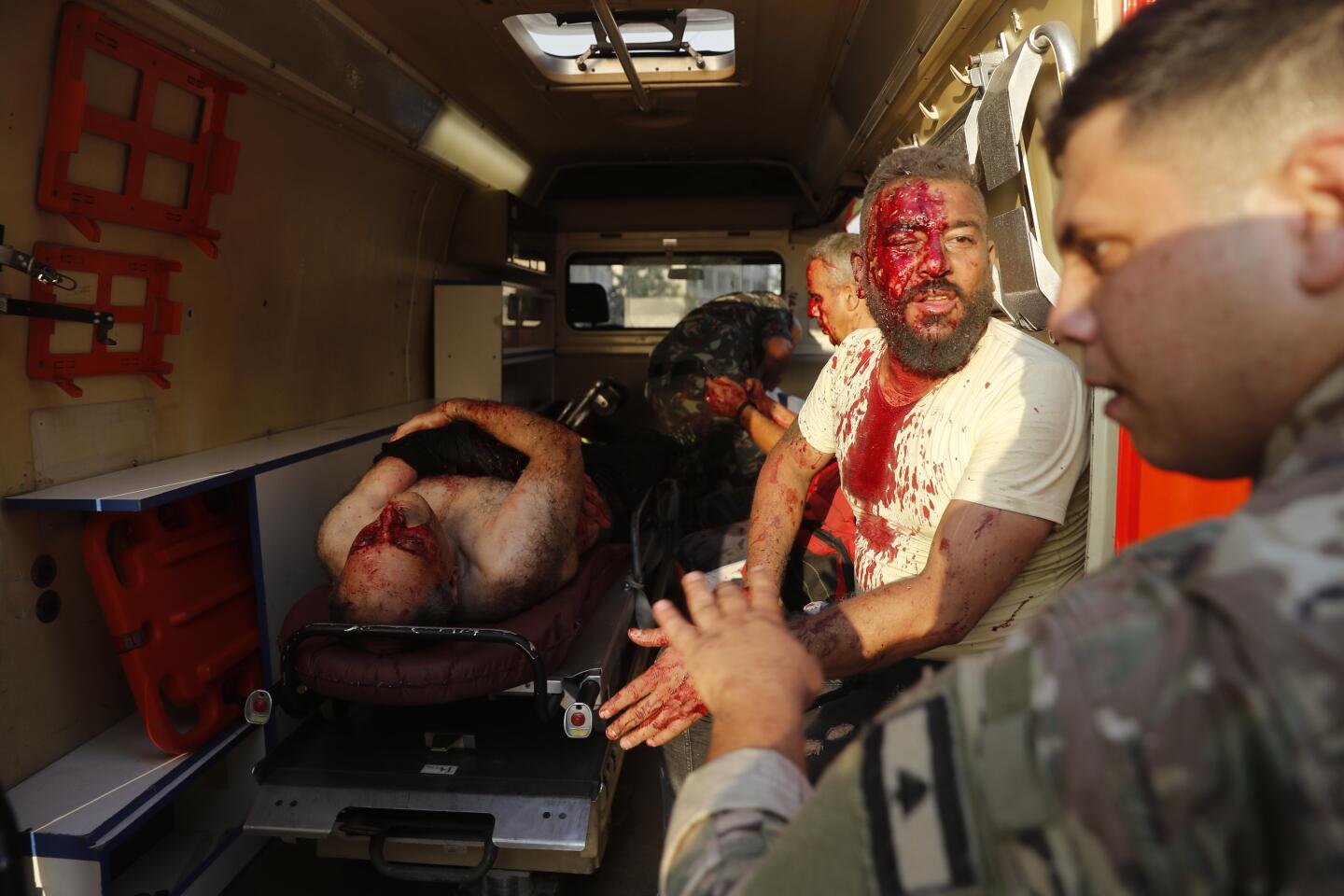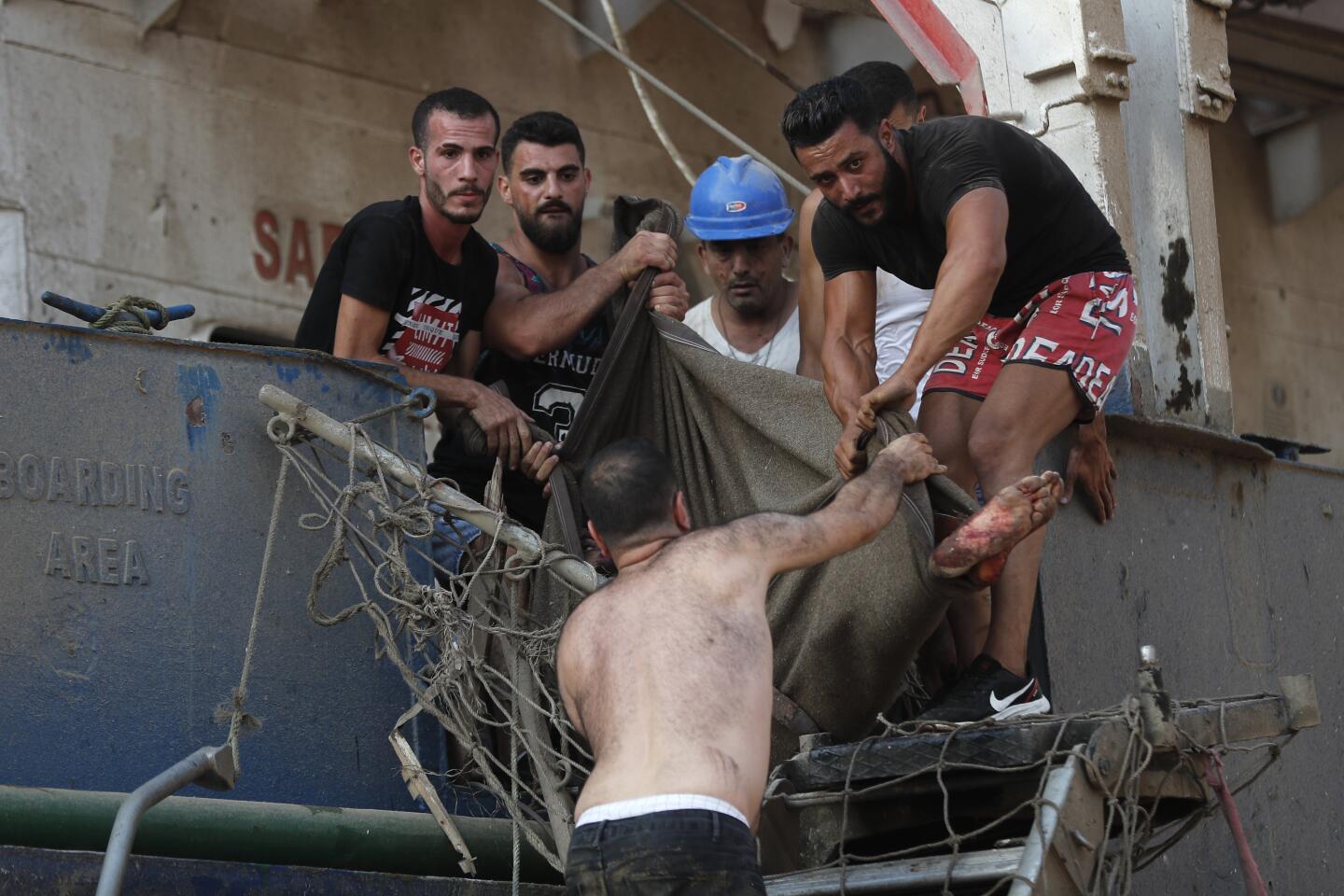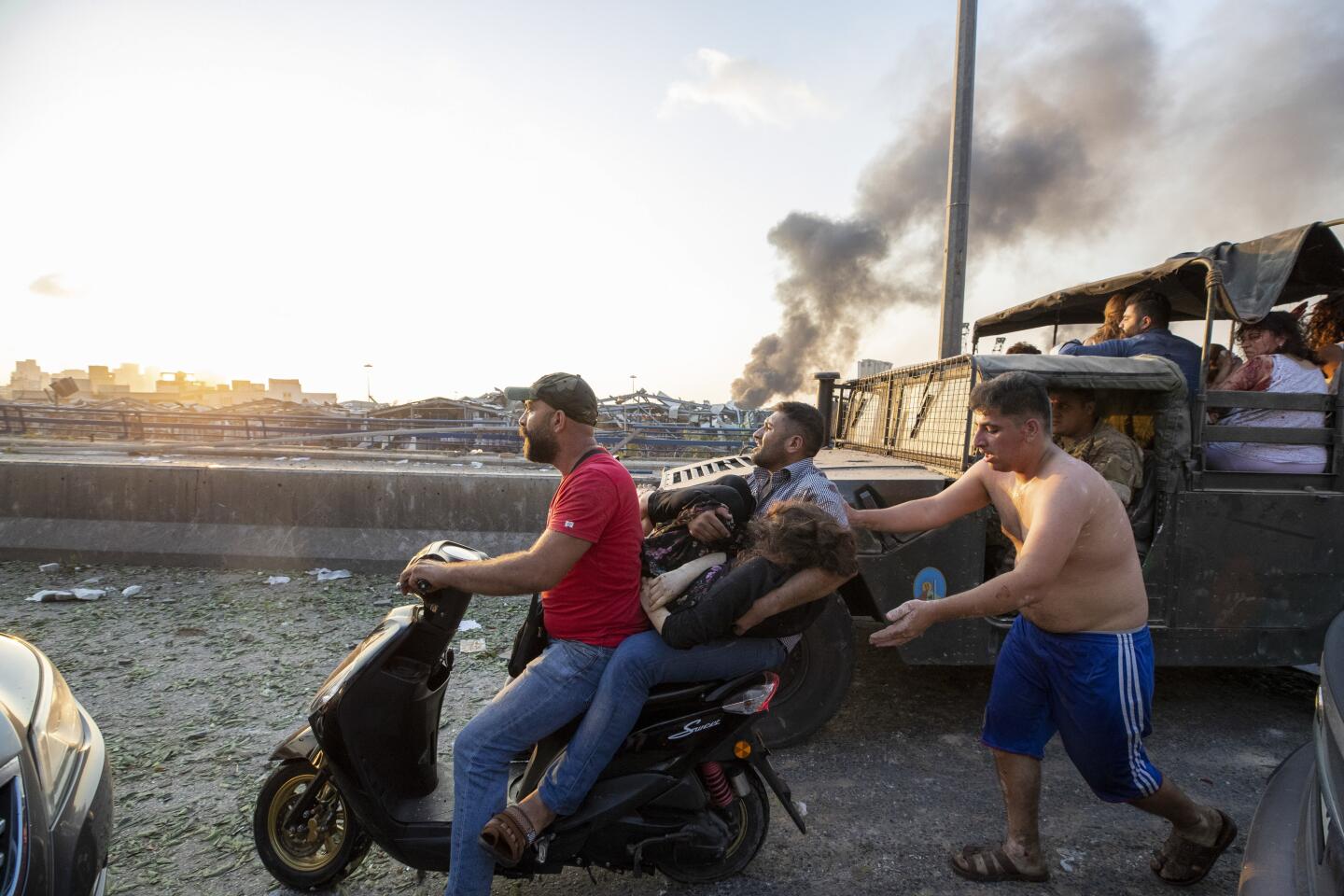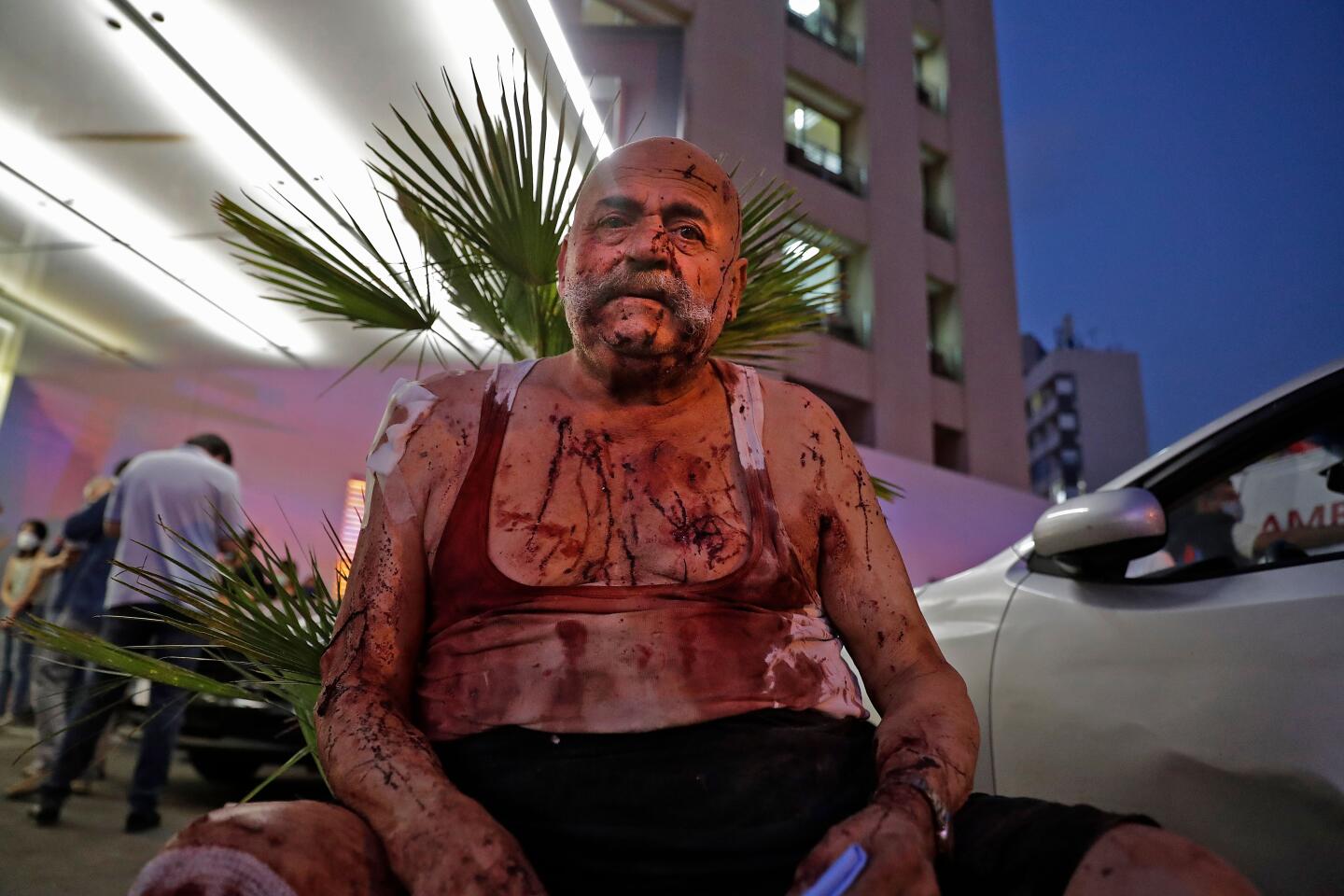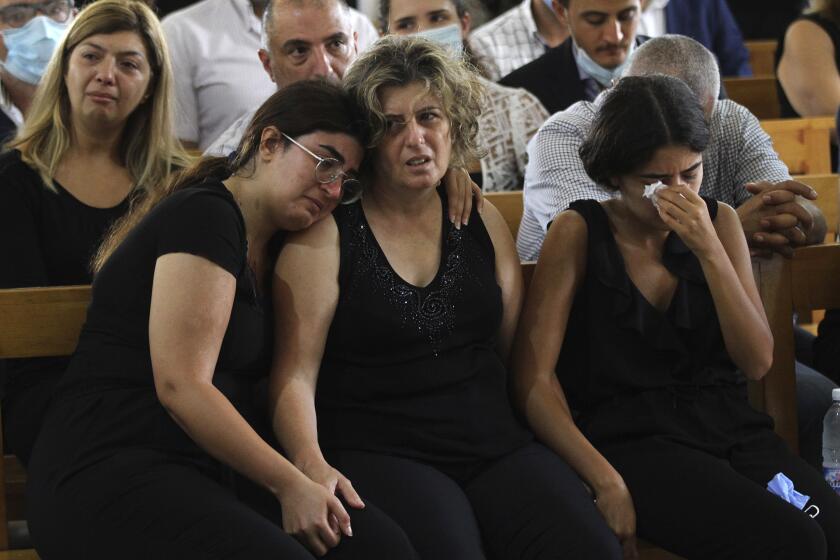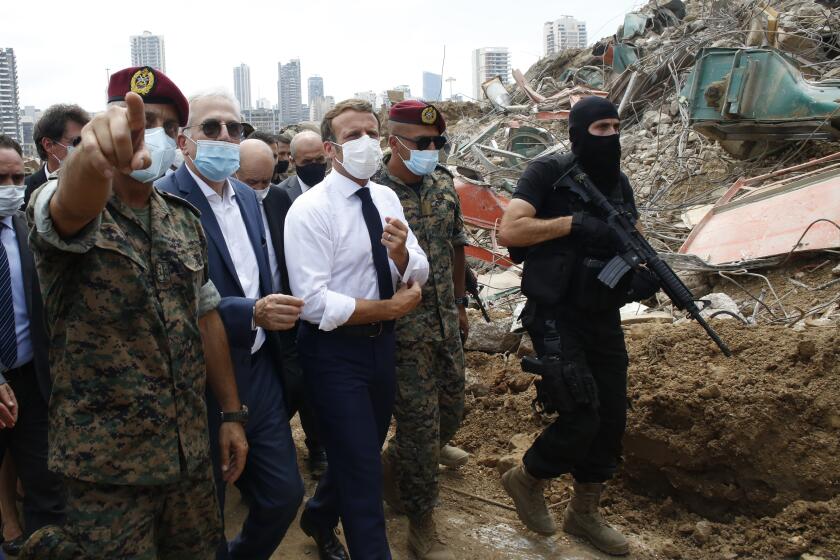A roar, an explosion, then a blank: An L.A. Times reporter’s ordeal in the Beirut blast
- Share via
BEIRUT — I don’t know how I’m still here.
On Tuesday, 2,750 tons of ammonium nitrate — a common fertilizer that’s also highly explosive (it’s Islamic State’s chemical of choice) — blew up in Beirut’s port. The blast, which ranks as one of the world’s largest non-nuclear detonations, registered as a magnitude 3.3 earthquake and could be felt as far away as Cyprus.
I was less than 500 yards away, so really, I mean it literally: I don’t know how I’m still here.
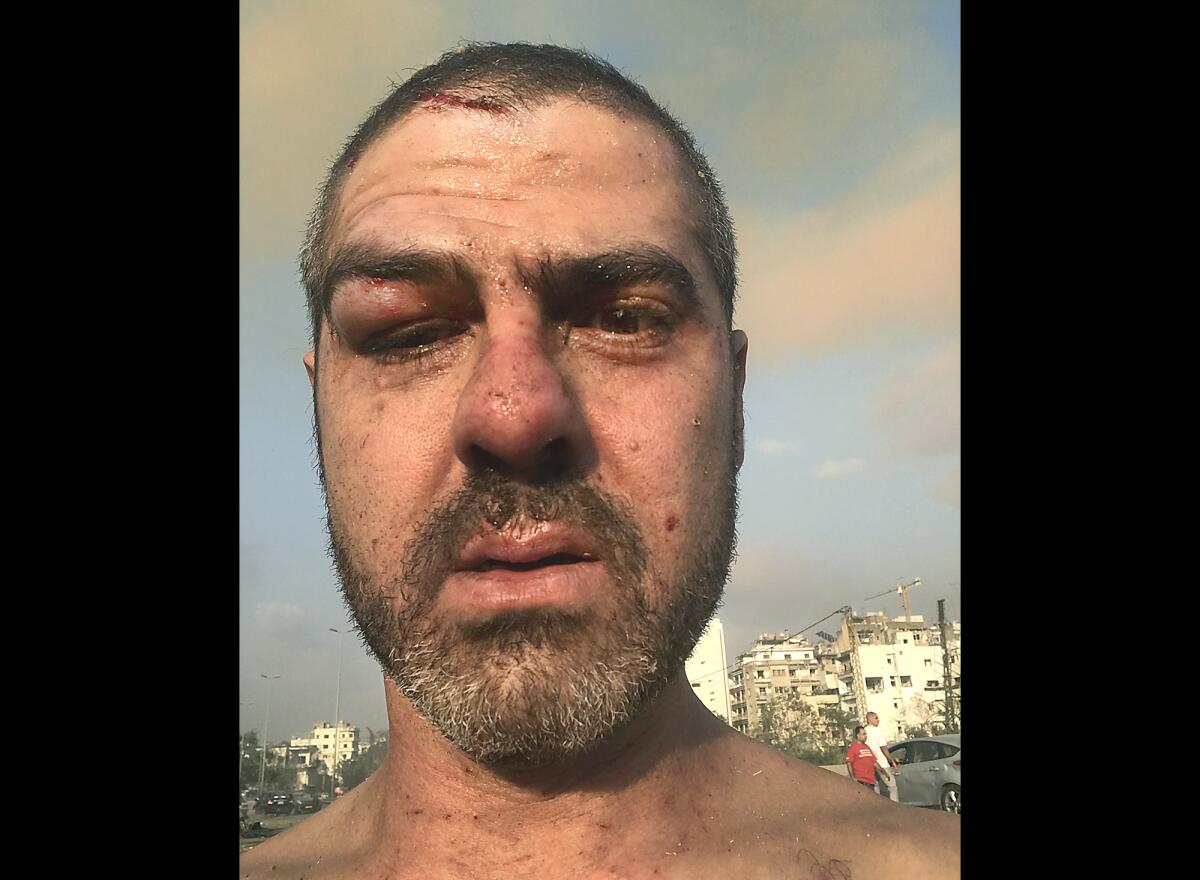
I remember doing mundane stuff before the chain of events that led to the explosion: postponing a restaurant reservation, sketching out a story brewing in my mind, making plans for the weekend with my fiancee. Then I heard a roar, a rumbling crescendo that had my neighbors running out to the street, convinced that the long-expected Israeli attack on Lebanon had finally come.
I went outside onto my apartment’s balcony, scanning the sky for jets before glimpsing fires eating away at the port. I tweeted a video of the rising plume of smoke, scrambled down the stairs and fired up my motorcycle, heading toward the port to take a closer look.
Then ... my memory goes dark. The next thing I can recall is the hell of coming to, after who-knows-how-many minutes of unconsciousness. My right eye was swelling shut, but I could register some people running, others screaming, still others lying bloodied and motionless on the ground. There was a carpet of glass, along with the crumpled husks of cars haphazardly strewn all over the road. The sky had turned a smoky sepia color, like an old-fashioned photograph.
Through tears in Beirut, Lebanese survivors share stories of missing loved ones
The rest comes in disjointed flashes. I recall someone talking to me as they wrapped a bandage around my head, while I obsessed over finding my phones. When I did, I called my fiancee, who says she had to give me step-by-step instructions, as if to a child, on how to activate the location tracker so that she could come get me.
She arrived to find me with a trio of medics and another journalist. Apparently, we had a 10-minute screaming match about what to do with my motorcycle; I refused to abandon it, as good a sign as any that neither my stubbornness nor my irrational love for motorbikes was affected by the blast. Over and over, I kept asking if she was OK and telling her I had no idea how I got to where I was. Days later, I still don’t know. It’s a blank, like the words of a song you know you ought to remember but just can’t.
I’ve since been playing Sherlock Holmes with my own life, trying to piece together what I did in the minutes before and the two hours after the blast. I’ve pored over pictures on my phone I don’t recall taking, discussed what was said with friends I don’t remember seeing. To an editor in London, I sent a slightly garbled message I don’t remember composing:
I we’re a video
I tweeted a video
I don’t remember c
My motorcycle helmet — what’s left of it — offers some clues to what happened, as do the marks and slashes on my arms. It seems clear that the helmet saved my life, and that my arms were cut up either from my fall off the bike or because I’d raised them for some reason at the moment of the blast, which bombarded them with high-speed debris, like shrapnel.
But none of this is conclusive. It probably never will be. Tantalizingly, there’s a video on my phone that won’t open from the time of the explosion. I keep hoping I’ll find a technical wizard to salvage it.
The Beirut explosion was likely caused by fireworks and ammonium nitrate, experts and video footage find. But now more difficult questions arise.
Nevertheless, a picture emerges of two things. One is that I was extremely lucky. The other — and this is a surprise for a card-carrying misanthrope like myself — is that people can be incredibly, almost irrationally kind in times of crisis.
One friend offered his car. Another drove my fiancee and me more than an hour outside Beirut to find a hospital that wasn’t inundated with casualties. A friend of my brother’s — whom I had never laid eyes on before — arranged for his neurosurgeon buddy to set up a CT scan appointment and eye examination, and chauffeured me from hospital to hotel to clinic. Everyone helped — no hesitation, no questions asked.
That generosity seems everywhere. In my neighborhood, roving bands of broomstick-toting volunteers walk around battered streets and apartments, sweeping away blood-soaked glass shards, pulverized furniture and the other detritus of lives shattered. Others grab tools, salvaging what materials they can to board up entrances and restore some semblance of normalcy for shell-shocked residents. Dozens of charitable groups and mutual aid organizations have reoriented themselves to dealing with the tragedy. All this is done in the almost complete absence of the state, whose carelessness appears to have caused the cataclysm in the first place.
For me, every time I see my fiancee and my friends, something grabs my throat. It often passes, but at times I can’t shake it, and I have to run to a secluded spot before the tears come out. I keep looking at a map showing my position relative to the blast, and the calculation of what combined to keep me alive, my fiancee relatively unhurt and the most important elements of my life intact never seems to add up.
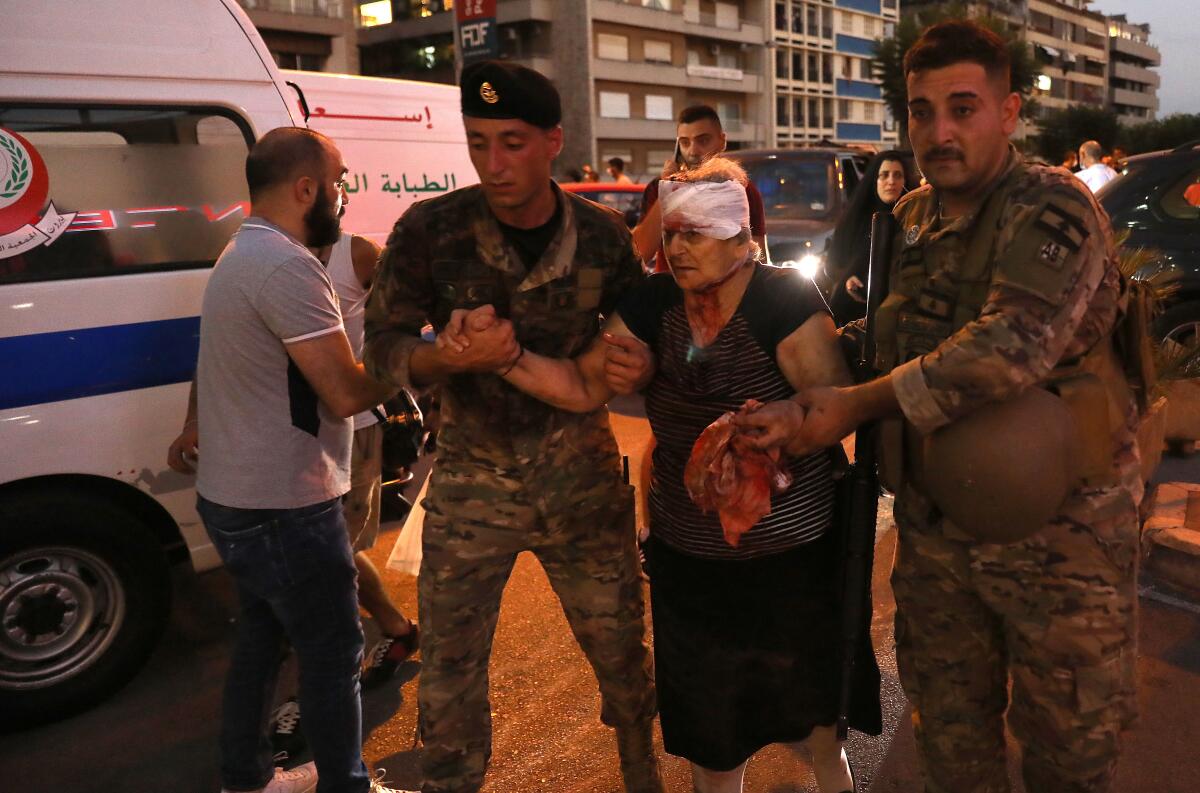
Meanwhile, so much of the city is in mourning. So far, almost 150 people have been killed and 5,000 wounded. Many are still missing. Hundreds of thousands are homeless.
Tragedies in Lebanon often dissolve into time-worn cliches: the supposed joie de vivre of the Lebanese people in the face of hardships; the notion of Beirut rebuilding itself after devastating bouts of conflict; the ad nauseam repetition of the word “resilience.”
This time, though, it’s less joie de vivre than fury. Predictably, there have been rumors, nurtured by doctored videos or the vehement assertions of supposed experts or eyewitnesses, claiming that the explosion was actually an attack. But the evidence points to it being little more than quotidian negligence, with bureaucrats seemingly unconcerned about thousands of tons of explosives stored beside a cache of fireworks for years on the city’s waterfront.
Residents of Beirut are venting their fury at Lebanon’s leaders, blaming them for the deadly explosion that ravaged the city.
That negligence has pushed enraged people into the streets. On Thursday night, they resumed the anti-government protests that had started last fall over Lebanon’s collapsing economy but had largely stopped because of the COVID-19 pandemic. Authorities speak of accountability and investigations, but few Lebanese have faith in the current system; the blast blew away what little shreds of confidence remained. Many say the status quo cannot continue.
That same night I returned to my apartment for the first time. As a correspondent, I’ve had the terrible privilege of reporting from war zones such as Iraq and Syria, where in Mosul, in Aleppo, in Homs, I’ve walked through the remains of people’s homes. Now the half-ruined dwelling was my own.
I used my shoulder to nudge open the bedroom door, which had jumped out of its frame. I picked pieces from a Lego collector’s set I own out from among tiny, razor-sharp pebbles of glass. I took stock of what could be salvaged and what — like so much in Beirut, my home for the last 11 years — needs to change. Many others face a similar but far more dire situation. The scale of the work seems immense.
But it’s one step at a time. For me, that means one thing for now: I’m getting a new helmet.
More to Read
Sign up for Essential California
The most important California stories and recommendations in your inbox every morning.
You may occasionally receive promotional content from the Los Angeles Times.
